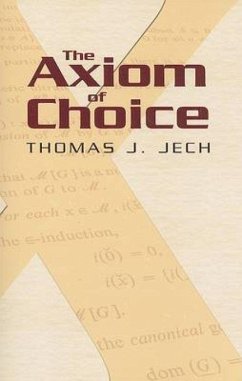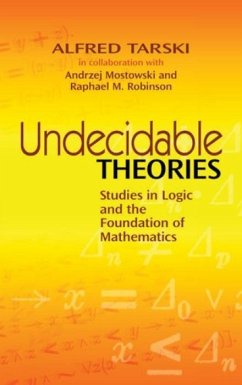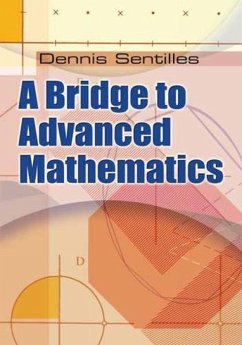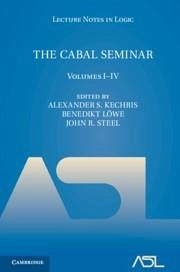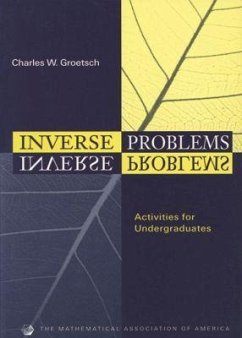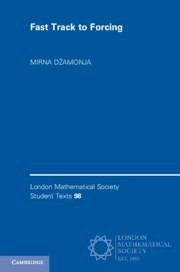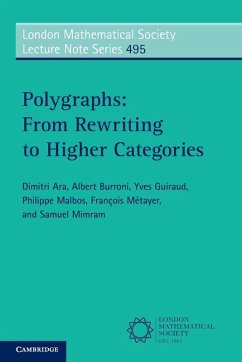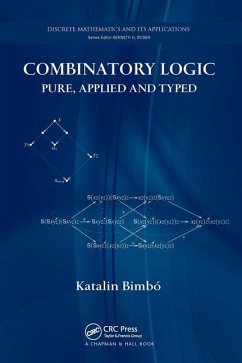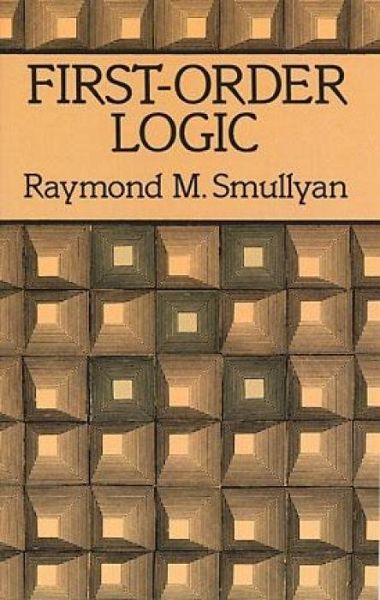
Raymond M Smullyan
Broschiertes Buch
First-Order Logic
Versandkostenfrei!
Versandfertig in über 4 Wochen

PAYBACK Punkte
5 °P sammeln!




This completely self-contained study, widely considered the best book in the field, is intended to serve both as an introduction to quantification theory and as an exposition of new results and techniques in "analytic" or "cut-free" methods. Presented in tableau format, the material covers propositional and first-order logic. 144 illustrations.
Born in New York City in 1919, Raymond Smullyan is a philosopher and magician as well as a famous mathematician and logician. His career as a stage magician financed his undergraduate studies at the University of Chicago as well his doctoral work at Princeton. The author of several imaginative books on recreational mathematics, Smullyan is also a classical pianist. Raymond Smullyan: The Merry Prankster Raymond Smullyan (1919- ), mathematician, logician, magician, creator of extraordinary puzzles, philosopher, pianist, and man of many parts. The first Dover book by Raymond Smullyan was First-Order Logic (1995). Recent years have brought a number of his magical books of logic and math puzzles: The Lady or the Tiger (2009); Satan, Cantor and Infinity (2009); an original, never-before-published collection, King Arthur in Search of His Dog and Other Curious Puzzles (2010); and Set Theory and the Continuum Problem (with Melvin Fitting, also reprinted by Dover in 2010). More will be coming in subsequent years. In the Author's Own Words: "Recently, someone asked me if I believed in astrology. He seemed somewhat puzzled when I explained that the reason I don't is that I'm a Gemini." "Some people are always critical of vague statements. I tend rather to be critical of precise statements: they are the only ones which can correctly be labeled 'wrong.'" — Raymond Smullyan Critical Acclaim for The Lady or the Tiger: "Another scintillating collection of brilliant problems and paradoxes by the most entertaining logician and set theorist who ever lived." — Martin Gardner
Produktdetails
- Verlag: Dover Publications
- Erscheinungstermin: 30. Januar 1995
- Englisch
- Abmessung: 212mm x 136mm x 12mm
- Gewicht: 231g
- ISBN-13: 9780486683706
- ISBN-10: 0486683702
- Artikelnr.: 22231786
Herstellerkennzeichnung
Libri GmbH
Europaallee 1
36244 Bad Hersfeld
gpsr@libri.de
Für dieses Produkt wurde noch keine Bewertung abgegeben. Wir würden uns sehr freuen, wenn du die erste Bewertung schreibst!
Eine Bewertung schreiben
Eine Bewertung schreiben
Andere Kunden interessierten sich für




